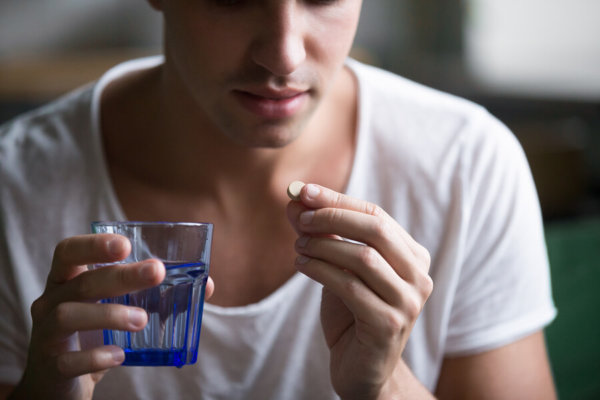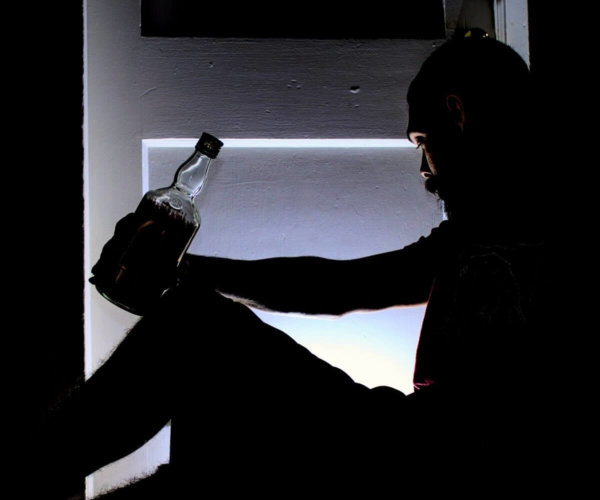
Alcohol and Diabetes – Substance use disorders are characterized by the abuse of alcohol or drugs that causes multiple physical and mental impairments in addition to a loss of social, academic, and professional functions. An otherwise healthy individual may experience a reversal of many of these problems if he or she receives substance abuse treatment and quits drinking.
However, this may not hold true for persons with diabetes – substance abuse can be immediately life-threatening in ways that would not affect others.
Types of Diabetes
Diabetes, also referred to as diabetes mellitus, is a condition in which the body is unable to regulate blood sugar levels properly. There are two forms known as type 1 and type 2 diabetes.
Type 1 diabetes, also known as insulin-dependent or juvenile diabetes, develops as a result of a loss of cells in the pancreas responsible for making insulin, and therefore, leads to a lack of production of insulin. Type 1 diabetes is often diagnosed in childhood.
Type 2 diabetes, which is more common, is caused by the body’s inability to use insulin properly and is referred to as insulin resistance. At the onset, the pancreas starts to make extra insulin in an effort to override the body’s resistance, but eventually, the pancreas cannot produce the amount of insulin needed to maintain blood sugar levels.
Uncontrolled Diabetes – Medical Problems

Uncontrolled diabetes may lead to dangerous conditions such as hyperglycemia or hypoglycemia. Hyperglycemia is described as abnormally high blood sugar levels, which happens when insulin in the body is insufficient. Hypoglycemia, conversely, refers to abnormally low blood sugar levels and occurs when there is a surplus of insulin in the body and inadequate sugar in the blood as glucose.
Both of these complications can result in dangerous health problems such as the following:
- Organ damage if hyperglycemia develops
- Increased vulnerability to high blood pressure
- Damage to blood vessels in the eyes, which can result in blindness
- Nerve damage (diabetic neuropathy) which can cause skin ulcers and other injuries that heal inadequately
- Paralysis and the amputation of limbs as a result of nerve damage or other injuries
- Blood vessel damage in the heart, which raises the risk of atherosclerosis, strokes, and cardiac arrest
- Coma or death due to either hyperglycemia or hypoglycemia
Also, when insulin levels are insufficient, the body may begin to break down fat to use as energy, but this, in turn, causes acids called ketones to accumulate in the bloodstream. This condition is known as diabetic ketoacidosis and is a medical emergency. Complications such as these are exacerbated by alcohol or drug abuse. Finally, alcohol abuse in conjunction with a poor diet has been identified as possible causes for type 2 diabetes.
Alcohol and Diabetes: The Impact
If a person with diabetes already experiences high blood pressure, nerve damage, or eye problems, the use of alcohol is not recommended. This is because, at least in part, wine and beer contain carbohydrates that can be transformed into glucose (sugar) and therefore, drinking alcohol may cause blood sugar levels to increase rapidly.
Alcohol Impairs the Liver
Drinking alcohol also prevents the liver from releasing stored glucose, which can result in dangerously low blood sugar levels. It takes approximately two hours for the liver to break down the alcohol that is contained in just a single drink. This energy spent could be otherwise used for the regular release of stored glucose.
Overall, alcohol reduces the body’s reaction time, interrupts the liver’s ability to release glucose, and may cause individuals with diabetes to develop hypoglycemia gradually.
For people with Type 1 diabetes, even a small amount of alcohol can lead to the onset of hypoglycemia hours later. These types of problems can worsen substantially for individuals with diabetes who drink heavily.
And terrifyingly, the symptoms of intoxication and hypoglycemia can be similar. Failure to identify a hypoglycemic episode (versus alcohol intoxication) can result in the diabetic person not receiving appropriate care.
Alcohol Exacerbates Nerve Damage

Among the complications of unmanaged diabetes is nerve damage, and excessive alcohol use can make the symptoms worse. When diabetic nerve damage develops, it can impact both sensory and motor function.
Alcohol abuse can also result in hyperalgesia, a condition in which damaged nerves become more sensitive to pain. Moreover, if a person with diabetes is already encountering pain from nerve damage, heavy alcohol use can significantly intensify the amount of pain experienced.
Also, alcohol abuse can cause the perpetual release of certain hormones that function to control pain and limit additional damage to the body. What occurs, however, is a continued increase in central nervous system activity, which will actually serve to increase pain signaling.
Ultimately, excessive alcohol intake makes it much more difficult for the body to manage pain developed from diabetic nerve damage, and in doing so, causes the person’s condition to worsen dramatically.
Alcohol Abuse and Eye Problems
Alcohol abuse can exacerbate any eye disease that is due to diabetes. Alcohol decreases brain activity, which causes pupils to respond slower and thus hinders their ability to widen or constrict correctly.
Over time, this can also permanently weaken the eye muscles, and as a result, heavy alcohol use can result in blurry vision permanent double vision – especially in diabetics who already have existing vision problems.
Alcohol consumption also prompts blood vessels in the eyes to swell, and this causes the characteristic red, bloodshot appearance.
Other Problems Associated with Alcohol and Diabetes – Food and Medication

Alcohol also diminishes the effectiveness of insulin injections/pumps that many type 1 diabetics use, as well as certain medications that foster insulin activity in type 2 diabetics. Some diabetes drugs (such as sulfonylureas and meglitinides) also lower blood glucose levels by stimulating the pancreas to make more insulin. Combining the blood-sugar-reducing effects of the medication with alcohol can result in hypoglycemia.
Drinking alcohol can dramatically increase hunger in many people, and intoxicated persons often make unfortunate food choices, overeat, forget to eat, and sometimes eat but then forget just a short time later that they consumed food. The combination of overeating in addition to alcohol’s potential to reduce the effectiveness of medication can easily lead to high blood sugar levels (hyperglycemia).
Finally, alcohol has a lot of calories and doesn’t do great things for the body’s metabolic rate. For people who are overweight, which is common among those with type 2 diabetes, drinking alcohol will only add empty calories and make it very difficult, if not impossible to lose weight.
Treatment for Alcoholism
Alcoholism is a devastating disease regardless of the individual’s physical or mental well-being, but people with diabetes are at a much higher risk of life-threatening problems and irreversible damage to one’s health.
Alcohol addiction is most effectively treated with a comprehensive approaching that includes detox, therapy, counseling, group support, and long-term aftercare. Our center offers 24/7 supervision on an inpatient basis, as well as intensive outpatient treatment for those who have completed an inpatient stay or require a more flexible schedule for treatment.
If you or someone you love has an alcohol use disorder, please contact us as soon as possible. You CAN regain your life and experience the happiness and wellness you deserve!